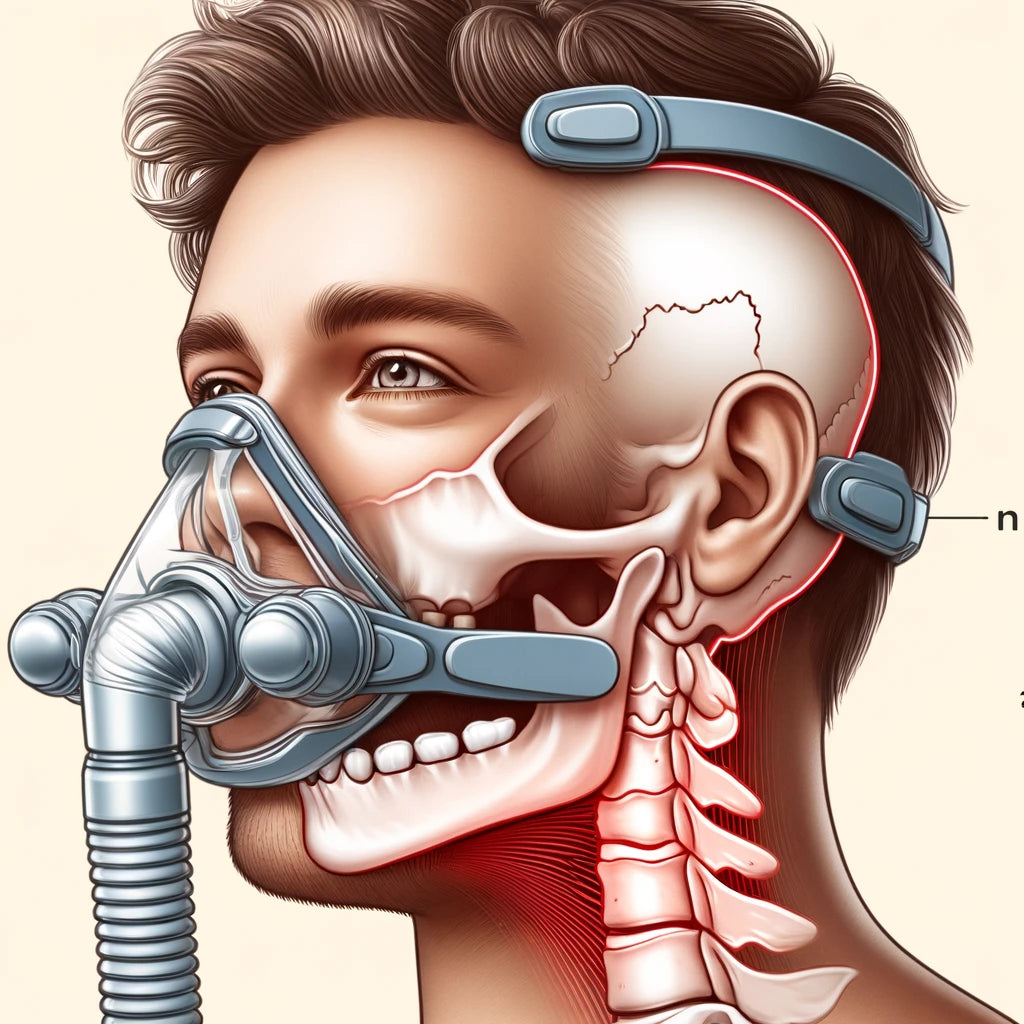Temporomandibular Joint Disorder (TMJ) is a condition that affects the jaw joint and surrounding muscles, leading to pain and dysfunction. For individuals with sleep apnea, CPAP (Continuous Positive Airway Pressure) therapy is a common and effective treatment. However, some people with TMJ may experience challenges when using CPAP therapy. In this blog post, we will explore the link between TMJ and CPAP therapy, the potential issues that may arise, and strategies to manage both conditions effectively.
Understanding TMJ
TMJ disorder involves pain and dysfunction in the temporomandibular joint, which connects the jawbone to the skull. This condition can cause a range of symptoms, including:
- Jaw pain or tenderness
- Difficulty chewing or discomfort while chewing
- Locking of the jaw joint
- Clicking or popping sounds in the jaw
- Facial pain
- Headaches or earaches
TMJ can be caused by various factors, such as injury, arthritis, jaw misalignment, or bruxism (teeth grinding).
CPAP Therapy for Sleep Apnea
CPAP therapy is a widely used treatment for obstructive sleep apnea (OSA). It involves wearing a mask connected to a machine that delivers a continuous flow of air, keeping the airway open during sleep. CPAP therapy is highly effective in reducing apnea events and improving sleep quality. However, for individuals with TMJ, the use of CPAP therapy can sometimes exacerbate jaw pain and discomfort.
The Link Between TMJ and CPAP
The relationship between TMJ and CPAP therapy is complex. Here are some ways in which CPAP therapy may affect individuals with TMJ:
1. Mask Pressure
CPAP masks, particularly full-face masks, can exert pressure on the jaw and surrounding areas. This pressure can aggravate TMJ symptoms, leading to increased pain and discomfort.
2. Jaw Positioning
Wearing a CPAP mask can alter the natural positioning of the jaw, potentially causing strain on the temporomandibular joint. This can lead to TMJ flare-ups, especially if the mask fit is too tight or misaligned.
3. Mouth Breathing
Individuals with sleep apnea often breathe through their mouths, which can contribute to TMJ symptoms. CPAP therapy encourages nasal breathing, but if nasal congestion forces mouth breathing, it can strain the jaw muscles and exacerbate TMJ issues.
Managing TMJ While Using CPAP Therapy
Despite the challenges, it is possible to manage TMJ symptoms while benefiting from CPAP therapy. Here are some strategies to consider:
1. Choose the Right Mask
Selecting a CPAP mask that minimizes pressure on the jaw is crucial. Nasal masks or nasal pillows may be more comfortable for individuals with TMJ compared to full-face masks. Ensure the mask fits properly and does not place undue pressure on the jaw.
2. Use a CPAP Pillow
CPAP pillows are designed to accommodate the CPAP mask and reduce pressure on the face and jaw. These pillows can help maintain a comfortable sleeping position and minimize TMJ discomfort.
3. Practice Jaw Exercises
Engaging in regular jaw exercises and stretches can help strengthen the muscles around the temporomandibular joint and reduce TMJ symptoms. Consult with a healthcare professional or physical therapist for recommended exercises.
4. Manage Nasal Congestion
Addressing nasal congestion can promote nasal breathing and reduce the need for mouth breathing. Consider using a nasal saline rinse, humidifier, or decongestant to keep nasal passages clear.
5. Consult with Healthcare Professionals
If you experience persistent TMJ discomfort while using CPAP therapy, consult with your healthcare provider, dentist, or a TMJ specialist. They can provide personalized recommendations and adjustments to your treatment plan.
Conclusion
Managing both TMJ and sleep apnea can be challenging, but with the right strategies, it is possible to find relief from both conditions. By selecting the appropriate CPAP mask, using supportive pillows, practicing jaw exercises, and addressing nasal congestion, individuals with TMJ can successfully use CPAP therapy to improve their sleep quality and overall health. If you experience difficulties, seek guidance from healthcare professionals to ensure you receive the best care for your specific needs.

